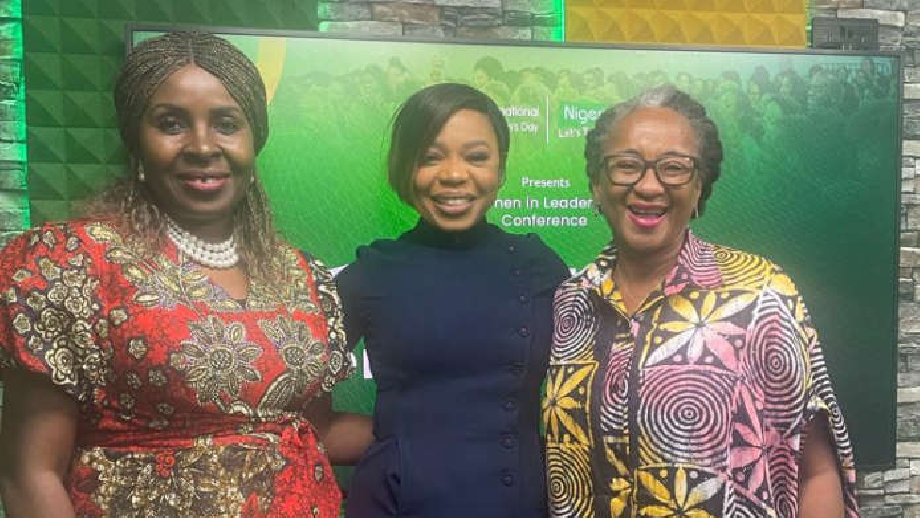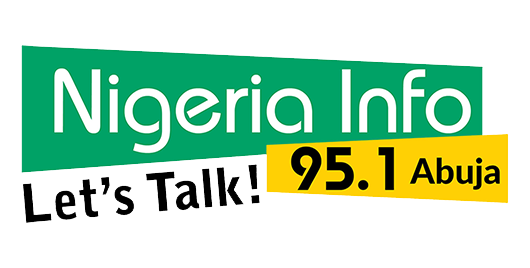
Gender bias and how to break off it topped the agenda when a panel of accomplished women joined Nigeria Info 99.3 Lagos FM for its 2024 Women in Leadership Conference.
The virtual conference was anchored by Nigeria Info presenter Maryann Okon on Wednesday, commemorating International Women’s Week.
Barrister Chinwe Efobi, the Lagos branch chairperson of the International Federation of Women Lawyers, challenged women to fight against bias, which she said arose from cultural and social norms.
“Most women lack confidence, they don't want to come out to grasp what is meant for them because we are in a man's world,” she said of the impact of gender bias.
“We need to encourage one another, especially the younger ones so they won't be discouraged.
“A woman came out to run for the post of chairman in one of the Nigerian Bar Association (NBA) branches, and in a branch that is up to 2000, she got just four votes,” she continued.
"Without having self-confidence, women cannot go far. Nigeria is a patriarchal society that feels women are supposed to be in the kitchen and the other room.”
Dr. Alero Roberts, an Associate Professor at the University of Lagos College of Medicine, agreed that the factors limiting women’s progress are the results of cultural beliefs and upbringing.
She, however, challenged women and girls to keep up with the quest to lead in their different fields and callings.
One of the panelists, Dr. Chinyere Almona, harped on the importance of having mentors early in a woman’s career.
The Director General of the Lagos Chamber of Commerce and Industry said mentors speed up professional growth.
“As a woman, if you don't have sponsors and mentors, it makes it very difficult to climb to the top,” said Dr. Almona.
“It is real that women are not naturally picked as leaders in most organizations and societies. But once there is a will, you will find a way.”
Ruby Igwe, a technology professional agreed that the right support is needed for women to rise to the peak of their careers.
“With the right support, women will rise,” she said.
She also praised women’s ability to lead where men find it difficult by providing nuanced perspectives on issues.
A good example is understanding the support other women, who become pregnant, need and how to get them to be productive.
It would take a woman who has then been a mum or has seen people who are mums try to lead or try to take audacious, Igwe said.
Another panelist who is a marketing communications professional talked about the challenges women in politics.
Oluwayemisi Mofe said It is “always difficult” for women to create the necessary supportive networks they need in politics.
They are often labeled as objects or aggressive, she complained. She is an advocate of coaching for women to come to the full realization of their potential.
“You are too powerful to let anyone relegate you to the background,” she told the audience who tuned in to Nigeria Info on radio and YouTube.
Nancy Taiye Aragbaye, a global impact strategist, opined that women’s leadership capacity was yet to be tapped and that women can lead in all fields of endeavor.
"We, as women, need to understand that our power is greater than motherhood, and sisterhood and that we can be powerful decision-makers,” she enthused.
All the women agreed it was time for young girls to realize they have equal opportunities as boys.
They encouraged women and girls to step forward and aim for the best.
Women Make Up Just 32 Percent of Global Leadership
Women hold less than a third of leadership positions globally, according to the professional networking platform, LinkedIn.
Not much has changed in the last eight years when women held just 31 percent of leadership positions.
Researchers have found that more women leave the workforce as they advance in their careers due to biases in the workplace and industry.
This is as true in the military as it is in sectors where women are usually well-represented at the entry level, LinkedIn research shows.
Women fare worse in politics where only 26 countries have a female head of state or government as of January 2024.
Although Nigeria’s National Gender Policy recommends 35 percent of female representation in political and appointive public service positions, only eight (19 percent) of President Bola Tinubu’s 47 ministers are women.
The ratio of women to men in the National Assembly is more dire. With only three of 109 Senators, women make up less than 3 percent of the Nigerian Senate and just 4.7 percent of the 360 members of the House of Representatives.


